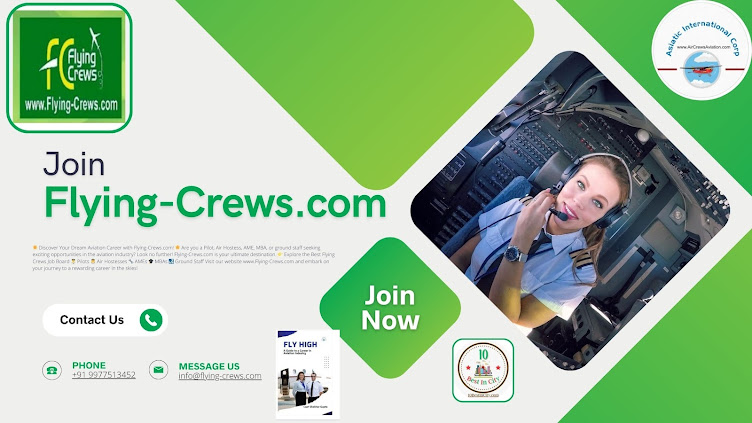Will AI Replace Pilots? The Future of Aviation Automation
The aviation industry has seen incredible advancements in automation, with modern Aircraft relying heavily on AI-driven systems. But the big question remains: Will AI completely replace human Pilots? While AI is revolutionizing aviation, it is unlikely that Pilots will become obsolete anytime soon. Let's explore the current Role of AI in aviation, its benefits, limitations, and whether a future without human Pilots is possible.
1. The Current Role of AI in Aviation
AI is already playing a significant Role in automating Flight operations, including:
✈ AutoPilot Systems
Most commercial Flights rely on autoPilot for the majority of the journey.
AutoPilot assists with navigation, altitude control, and fuel efficiency.
✈ AI-Powered Air Traffic Control (ATC)
AI is being used to manage busy Airspaces and reduce delays.
Predictive analytics help optimize Flight paths and avoid congestion.
✈ Predictive Maintenance
AI analyzes data from Aircraft sensors to detect potential failures before they happen.
This reduces unexpected breakdowns and improves safety.
2. The Advantages of AI in Aviation
AI is making flying safer, more efficient, and cost-effective in several ways:
✔ Reducing Human Error – AI minimizes mistakes caused by fatigue or distractions.
✔ Improving Safety – Automated systems quickly detect and respond to issues.
✔ Cost Savings – Airlines save fuel and maintenance costs through AI optimization.
✔ Handling Complex Data – AI processes vast amounts of information faster than humans.
3. Challenges & Limitations of AI in Replacing Pilots
Despite its benefits, AI cannot completely replace human Pilots due to several challenges:
🚨 Emergency Situations – AI lacks human intuition, creativity, and decision-making skills in unexpected crises like engine failures or extreme weather.
🚨 Cybersecurity Risks – Fully automated Aircraft would be vulnerable to hacking and system failures.
🚨 Passenger Trust & Regulations – Would people feel safe flying in a plane without a human Pilot? Regulatory bodies like the FAA and ICAO require human oversight.
🚨 Moral & Ethical Dilemmas – AI cannot make ethical judgments in life-or-death situations the way humans can.
4. The Future: AI and Pilots Working Together
Rather than replacing Pilots, AI will likely act as a co-Pilot to enhance safety and efficiency. Future Aircraft may have:
🛩 Single-Pilot Cockpits – Instead of two Pilots, AI may take over some responsibilities, reducing the need for a co-Pilot.
🛩 Fully Autonomous Cargo Planes – Non-passenger Flights may be the first to go fully AI-operated.
🛩 Advanced Decision Support Systems – AI will provide real-time recommendations to Pilots, improving decision-making.
While AI will continue to transform aviation, human Pilots remain irreplaceable for handling unpredictable situations, making ethical decisions, and ensuring passenger confidence. Instead of eliminating Pilots, AI will enhance their abilities, making Air travel safer, smarter, and more efficient.
Shrishty Sharma
Manager HR/ Author
Asiatic International Corp
Shrishty@Flying-Crews.com
Shrishty@Air-Aviator.com
LinkedIn :
Link tree: https://linktr.ee/Shrishty_HRM_Flying_Crews
Vcard:
https://shrishtysharma.vcardinfo.com
Instagram : https://www.instagram.com/Flyingcrewhrm
YouTube : https://www.youtube.com/aerosoftcorp



No comments:
Post a Comment